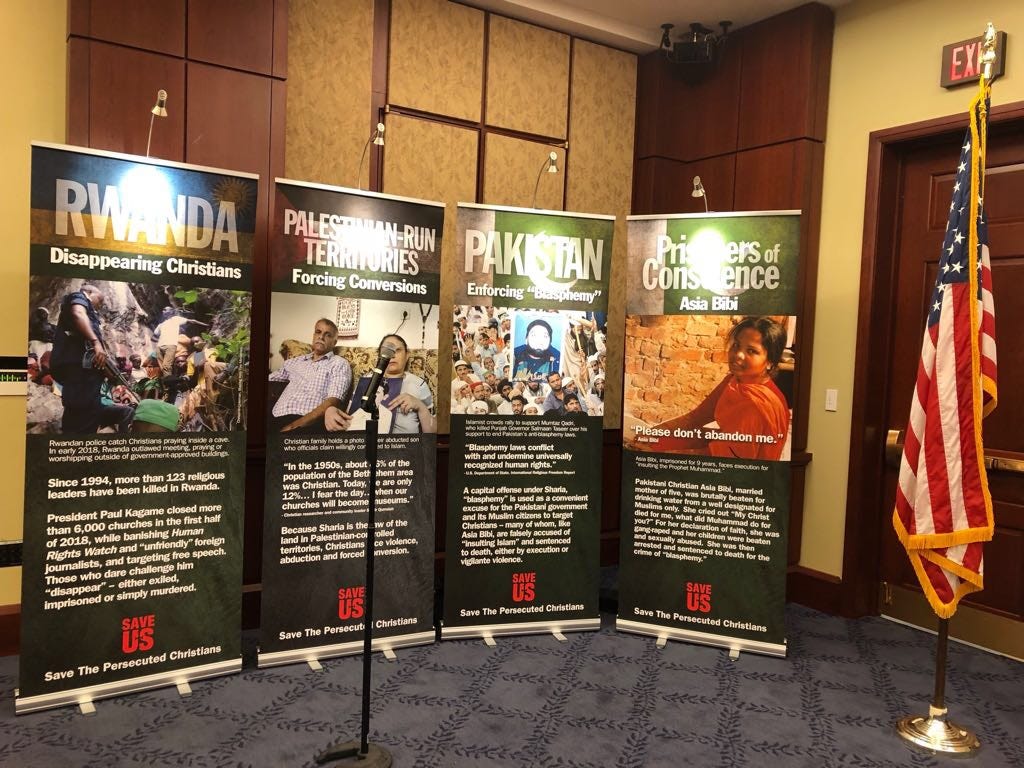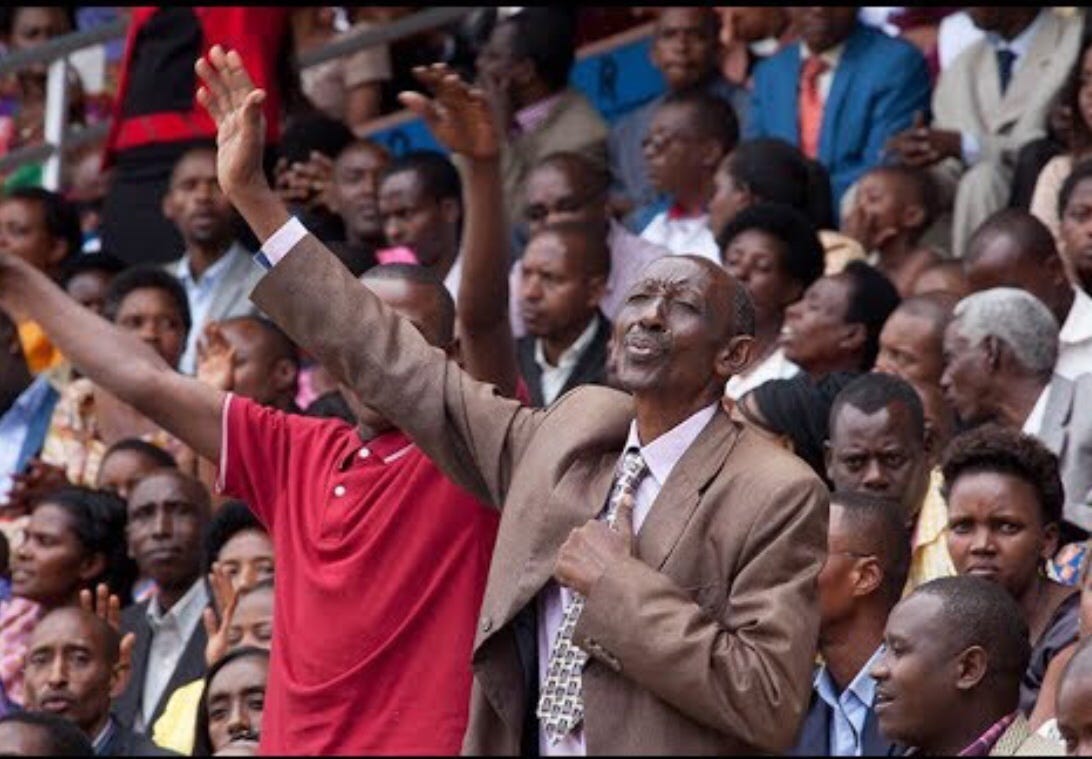By David Himbara
On July 24, 2018, in the US Capitol, leaders and guests from different corners of the world witnessed the violent realities Christians have to endure in lawless and authoritarian regimes. This was part of the week-long event in which Christian organizations from around the world gathered in Washington, DC, to bring about greater awareness of persecuted Christians.
Among the exhibits of persecuted Christians featured Kagame’s Rwanda alongside other notorious regimes that brutalize Christian communities. The exhibits also featured Iraq, Syria, Iran, Turkey, Lybia, Sudan, Nigeria, and Pakistan.

A poster used at the Rwandan exhibit at the US Capitol Visiters’ Center, July 24, 2018.
The Rwandan exhibit showed this year’s brutality against Christians.
The Rwandan exhibit revolved around the March-May 2018 violence against Christians and Muslims. This episode began with President Paul Kagame’s infamous reaction to the large number of churches and mosques in the capital city, Kigali. He stated as follows:
”700 churches in Kigali? Are these boreholes that give people water? I don’t think we have as many boreholes. Do we even have as many factories? This has been a mess!”
Kagame’s government then closed around 7,000 churches and 100 mosques. Five pastors and one bishop whose churches were closed were imprisoned for their faith. Intimidation of church leaders became the order of the day. The regime justified its actions by citing noise pollution and unhygienic conditions in the churches. The real reason was, however, that churches and mosques were the last spaces for freedom of expression. This had to be eliminated just as in the broader society where holding independent thoughts constitute a crime in Rwanda’s totalitarian state that seeks to control all aspects of the national life.
Kagame was to dish out more violence as shown at the Washington exhibit.
In April 2018, the Kagame regime descended on the American Amazing Grace Christian Radio. The regime ordered the Radio’s Director, Gregg Schoof, to plead guilty following a sermon preached by another pastor at the Radio. The brave pastor refused to do and stated as follows:
”The government has ordered me to plead guilty against my conscience. I refused to plead guilty, so they revoked our broadcasting license. You can’t order people to plead guilty! The Rwandan constitution guarantees that we have the right of opinion and conscience.”
The latest form of religious persecution in Kagame’s Rwanda is in the form of the new law passed in July 2018.
The law introduces a number of draconian requirements for preachers — not least the directive that the preachers must possess a bachelor’s degree in religious studies or another bachelor’s degree. Further, Christians are not allowed to congregate outside church buildings. Previously, Rwandans prayed at the mountain tops and in caves near their homes — this is now illegal.
Lessons Learned from the Washington, DC event
One of the highlights of the week-long event in Washington, DC, was the participation by Secretary of state Michael Pompeo, who hosted ”the Ministerial to Advance Religious Freedom.” He engaged civil society organizations, including organizations working on religious freedom. Senior officials provided an overview of foreign policy goals in relation to international religious freedoms.

All in all, the week-long activities to bring greater awareness of persecuted Christians achieved its objectives, especially for the Rwandan participants. These Rwandans were able to tell the world and their American hosts that Kagame’s Rwanda is gross human rights abuser that has lately targeted Christians in particular. There you have it. That is how Kagame’s Rwanda featured in the US Capitol for the wrong reasons — persecution of Christians.


